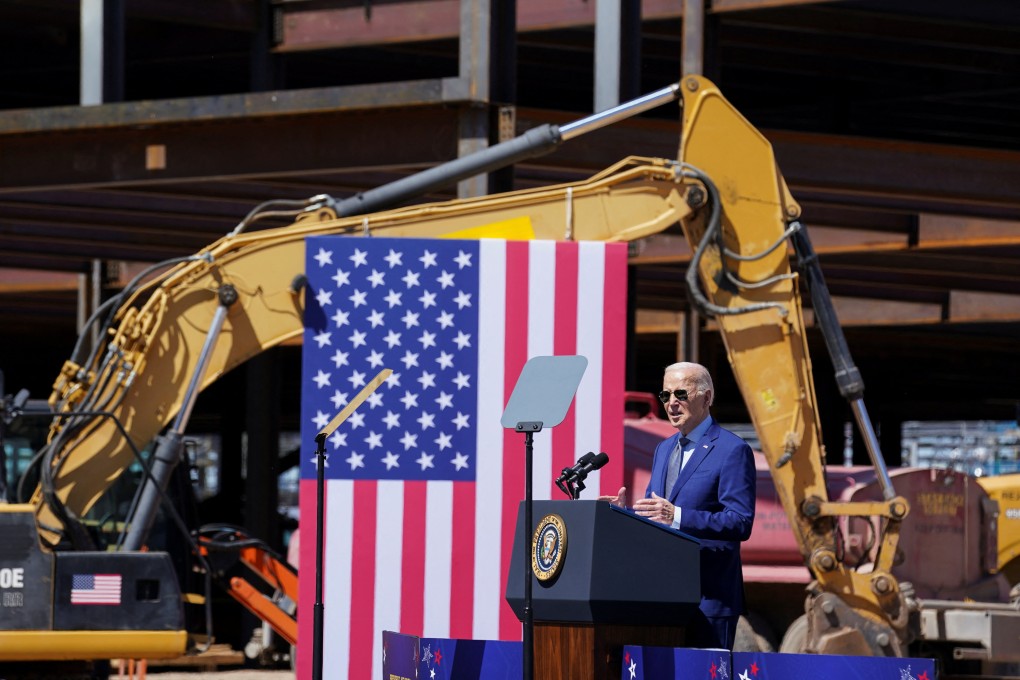Biden’s big semiconductor law will boost US chip production at high cost: report
Subsidies behind the expected chipmaking boom mean that each job created will cost taxpayers about US$185,000 a year

Researchers at the Peterson Institute for International Economics calculated that the US$280 billion Chips and Science Act will create about 93,000 construction jobs as chip factories go up in the United States and 43,000 permanent jobs once they are in operation.
But the government subsidies behind the expected chip manufacturing boom mean that each job created will cost taxpayers about US$185,000 a year – twice the average annual salary of US semiconductor employees, the Peterson report found.
“More production might not provide the best security for the money,” researchers Gary Hufbauer and Megan Hogan wrote.
The Peterson report notes that in passing the Chips and Science Act, Congress “did not consider” alternative ways of spending billions of dollars to ensure the US had adequate chip supplies.

Other options could have included creating a chip stockpile run by the Federal Emergency Management Agency or providing financial incentives for US chip users and foreign chip producers to keep bigger inventories of semiconductors in the United States.